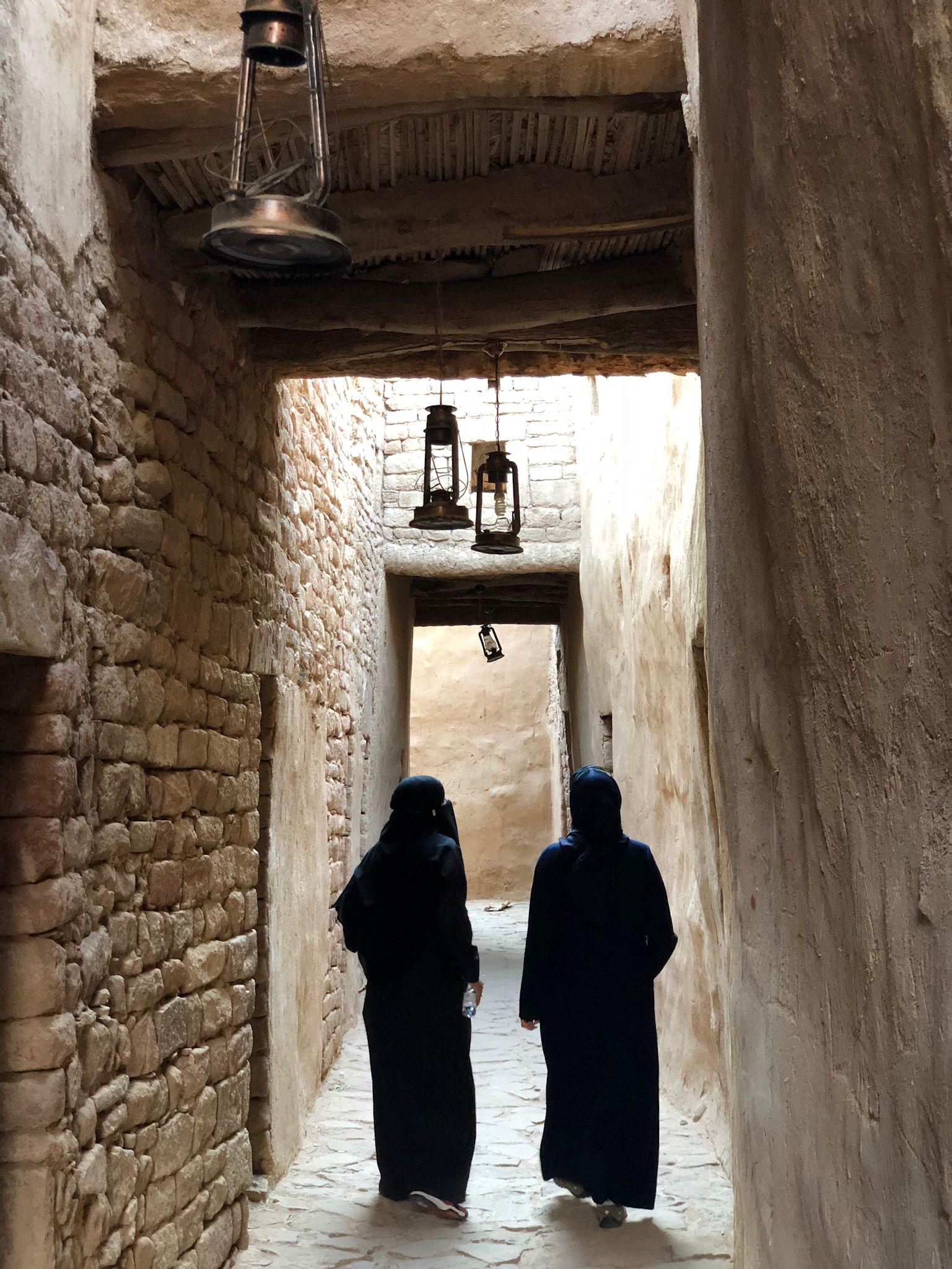
In 2017, Saudi Arabia announced it was going to reduce its dependence on oil and diversify its economy, placing a focus on tourism. Shortly thereafter, Melissa Biggs Bradley, the founder and CEO of Indagare, a members-only, boutique-travel-planning company offering curated content, customized trip planning and group trips, was invited into the kingdom by one of its royal commissions on regional tours to advise on how to develop historical sites and attract Western travelers. In January 2018, she and her chief operating officer, Eliza Harris, flew to Riyadh before heading out to the Al-'Ula region and Mada'in Saleh, a UNESCO World Heritage site. She tells Paula Froelich about their unique journey.
In some ways, the [Mada'in Saleh] region looks like a flatter version of the Grand Canyon. It's beautiful, with rock-hewn, massive cliffs and desert. Within this area, there are palm oases, one with more than 2 million palm trees, and also 2,000-plus-year-old archaeological sites which are just beginning to be excavated. In that area, remains of multiple different societies have been found. The largest area of ruins has been identified as the second largest Nabataean city [the first being Petra in Jordan].
The region is incredibly beautiful, and it's deeply interesting from an archaeological perspective. For somebody who's been lucky enough to visit Petra, Angkor Wat, Machu Picchu and other great ruins and wonders of the world, this is absolutely on equal footing with them in terms of ancient architecture and artifacts, as well as the scale. And yet virtually no one has heard of it.
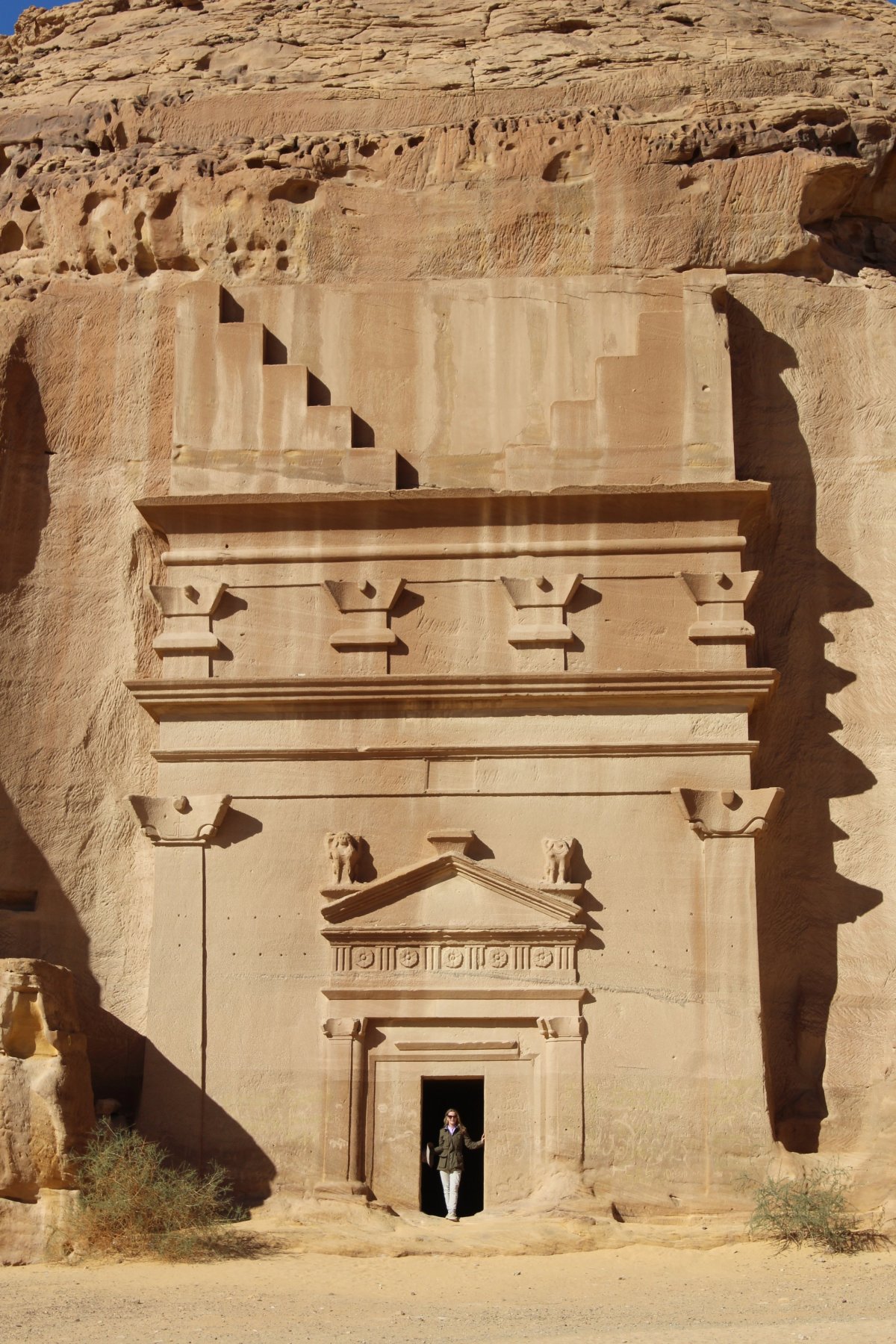
Everybody's familiar with Nabataean architecture because of Petra, which appeared in one of the Raiders of the Lost Ark films. So few people have visited or seen photos of Mada'in Saleh because Saudi Arabia had not issued tourist visas before it announced it would do so last year. Previously, they were not set up for a tourist economy. The only visas you could get to visit Saudi Arabia were either for business purposes as guests of the royal kingdom or for religious purposes to go to Mecca. They were not interested in having foreigners visit their country, and so Mada'in Saleh has not been visited by very many Western visitors.
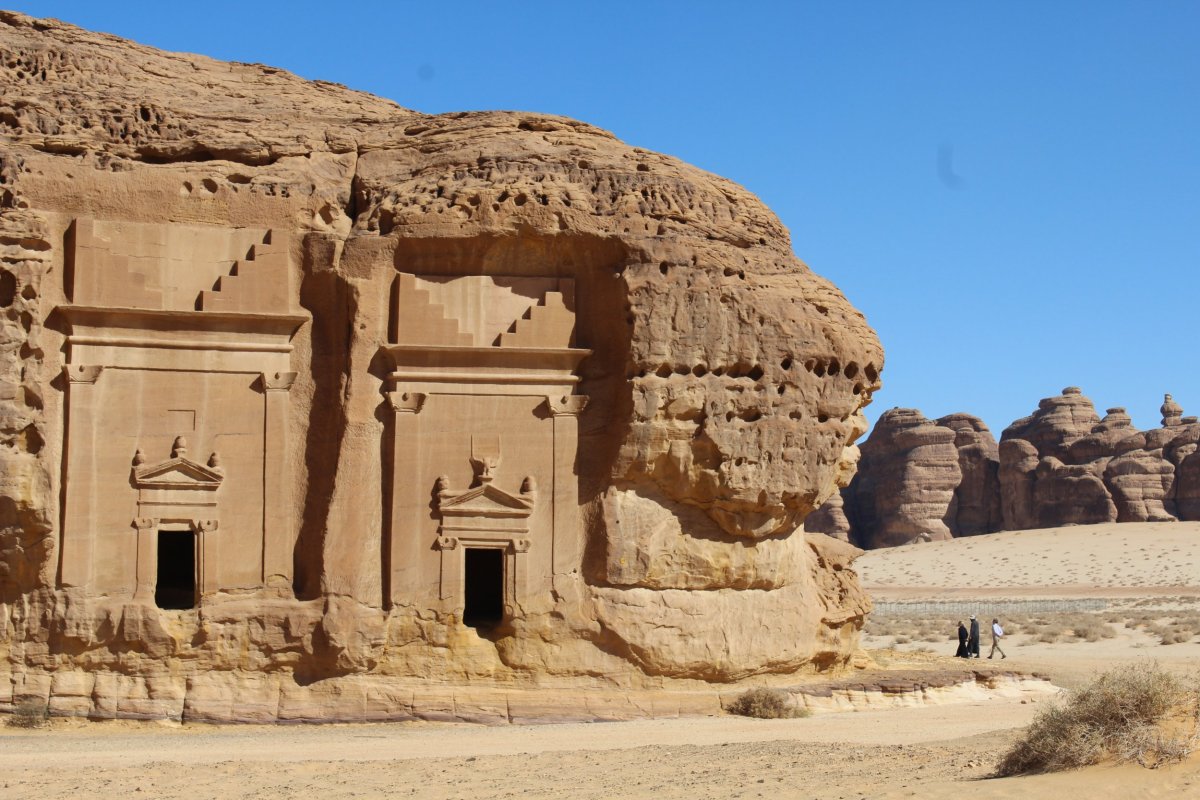
Within this spectacularly beautiful setting, there are over 100 different buildings that look very similar to those in Petra, with Greco-Roman influences. There are also traces of other civilizations, such as the Dedanite and Lihyanite civilizations, because this particular area was on an important trade and religious route for centuries before the birth of Christ. It had inscriptions in the rock from this time alongside early Islamic writings from people making the hajj pilgrimage, who would have had to cross the desert on their way to Mecca.
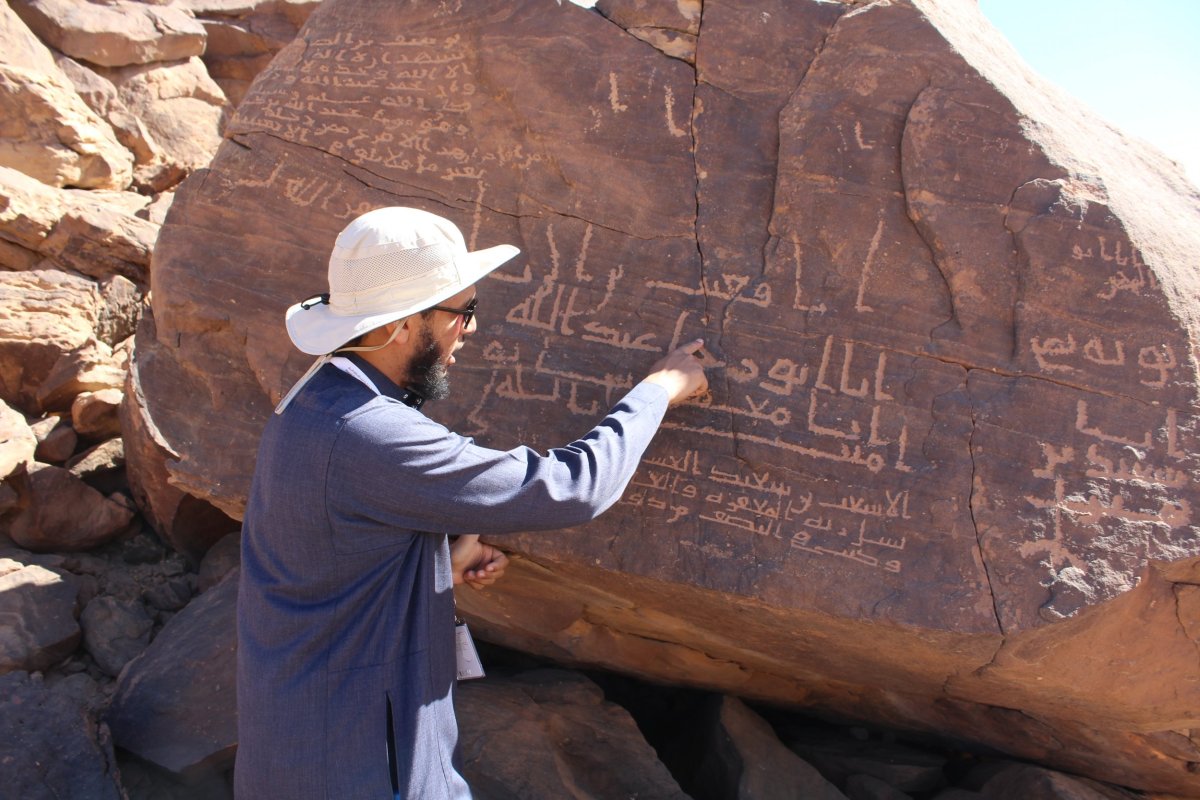
We took a helicopter tour over the whole region at one point to get a sense of the scale and to stop at different points, including Mount Akra, which had early Islamic writings dating back to the first years after the death of Muhammad. It had graffiti on the rocks from the 15th century and said things like "May Allah bless my journey" or "Anyone who comes here without water has no one but himself to blame." After all, this is and was desert.
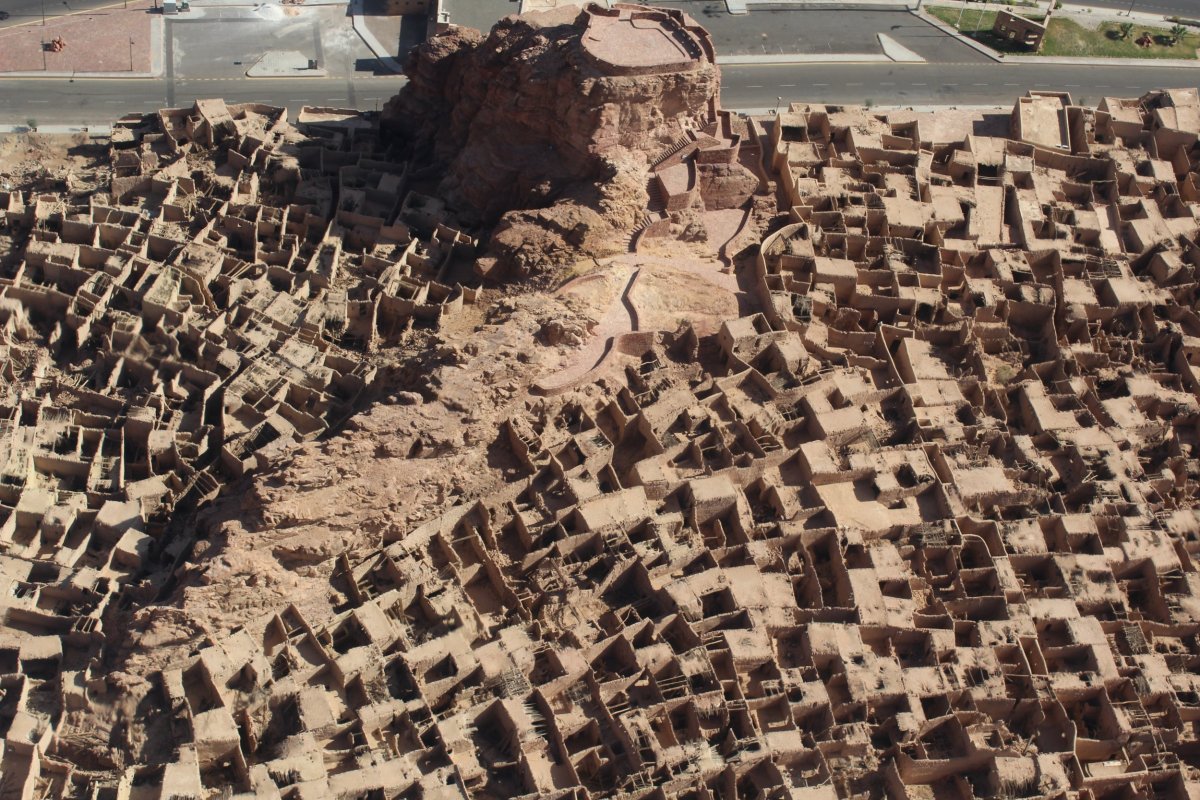
As you walk around, you see shards of pottery in the sand that were from the Dedanite, Nabatean or early Islamic periods, because archaeologists have only just begun to be able to document this area.
There's nobody living in Mada'in Saleh, but there are roughly 65,000 people living in the entire region and a concentration in a town that has grown up around the ancient walled village that is now a heritage site. Throughout the region, you see women who are completely covered in abayas and head scarves as they are in Riyadh, as well as women in burqas. We wore abayas and head scarves throughout our stay, unless our local hosts told us that we could remove them. The government is sensitive to local traditions and doesn't want to bring in travelers who, for instance, are going to expect to be drinking alcohol or would not be comfortable with respecting the traditional dress code.
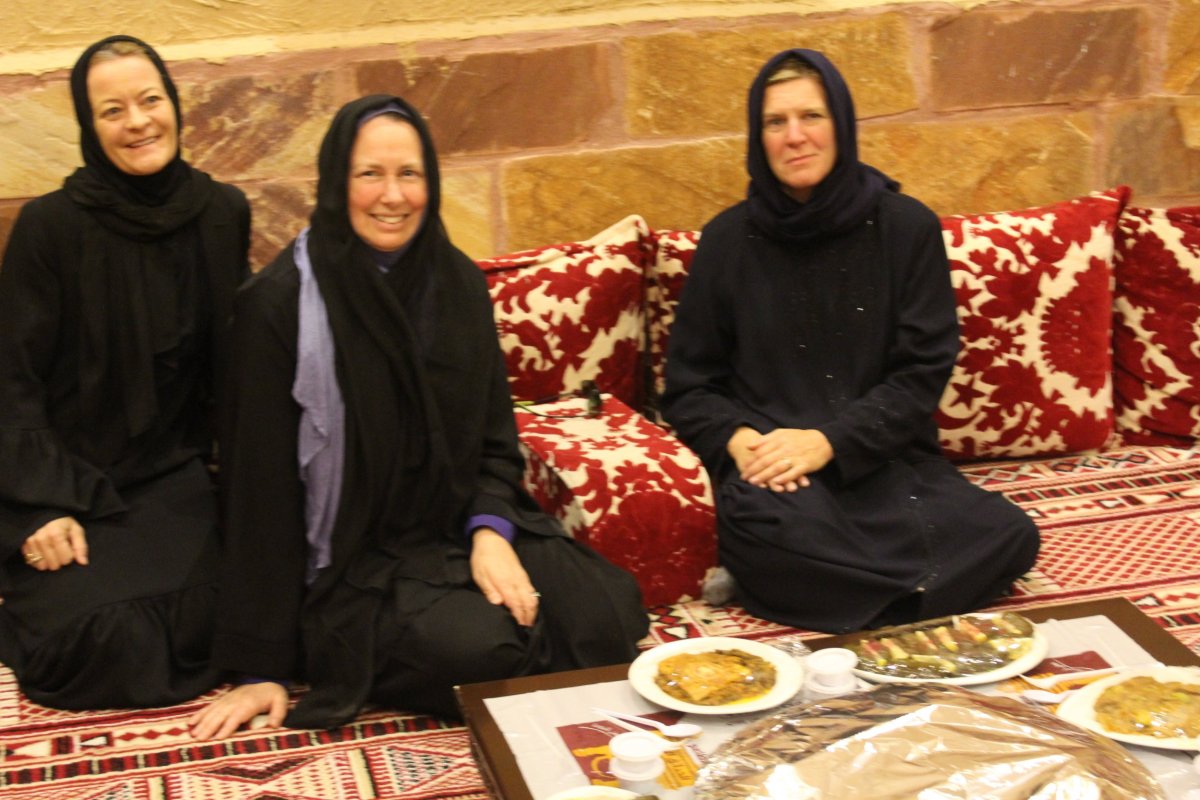
What was that like—being a Western woman in Saudi Arabia?
You need to be properly attired when you get off the plane in Saudi Arabia, with both a head scarf and an abaya. And, according to what I have read of the new visa rules, women under the age of 25 traveling to Saudi Arabia must be accompanied by a family member.
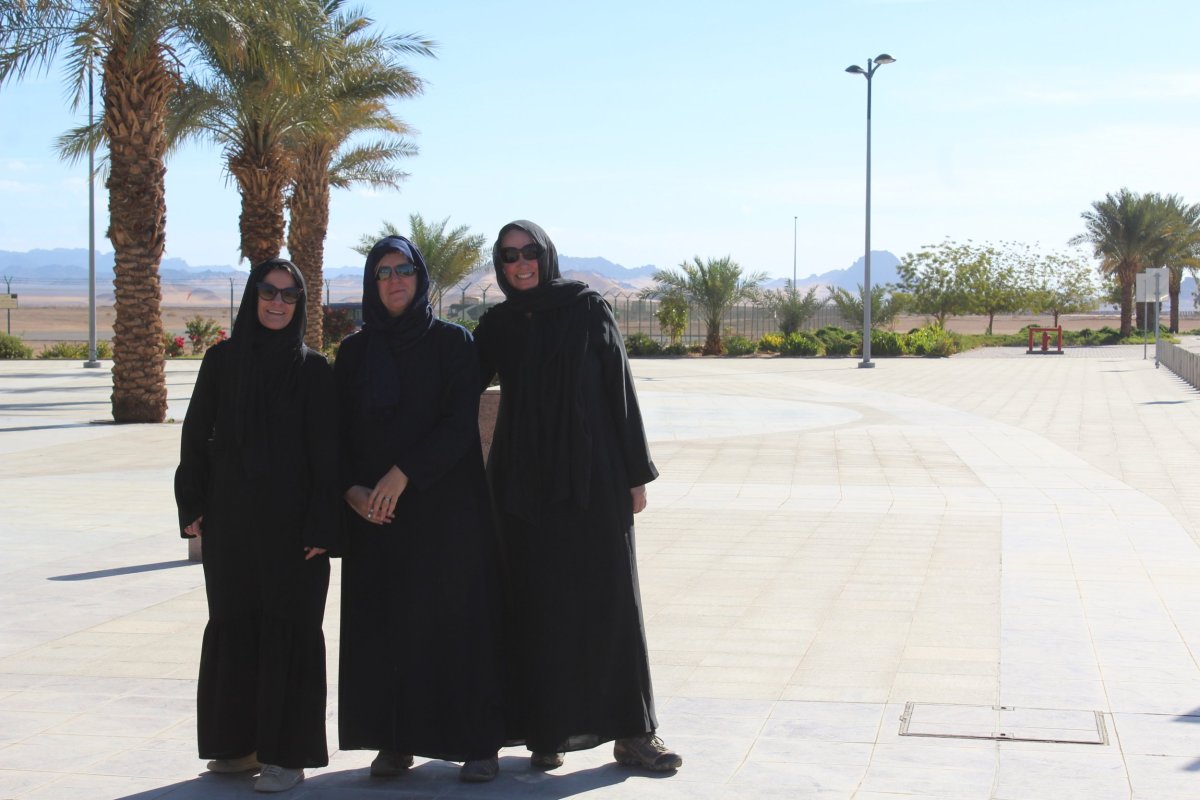
In Riyadh, you see women with quite fashionable interpretations of the abaya and their head scarves. We then flew to Al-'Ula, and there, every woman is in a black abaya. There were quite a few women there who wore the burqa—full coverage where you could only see their eyes.
We never felt uncomfortable or unwelcome. We were hosted by people who are involved in opening up the country to tourism. Riyadh has sophisticated, modern-looking shopping areas, with Tiffany and Victoria's Secret shops. Al-'Ula had no international brands, and, while the women were more conservatively dressed, they were very welcoming and warm. In Al-'Ula, we met one young woman in her 20s who was hoping to become a tour guide and to learn how to drive. She was very open and excited about tourism and the opportunities that it was going to bring.
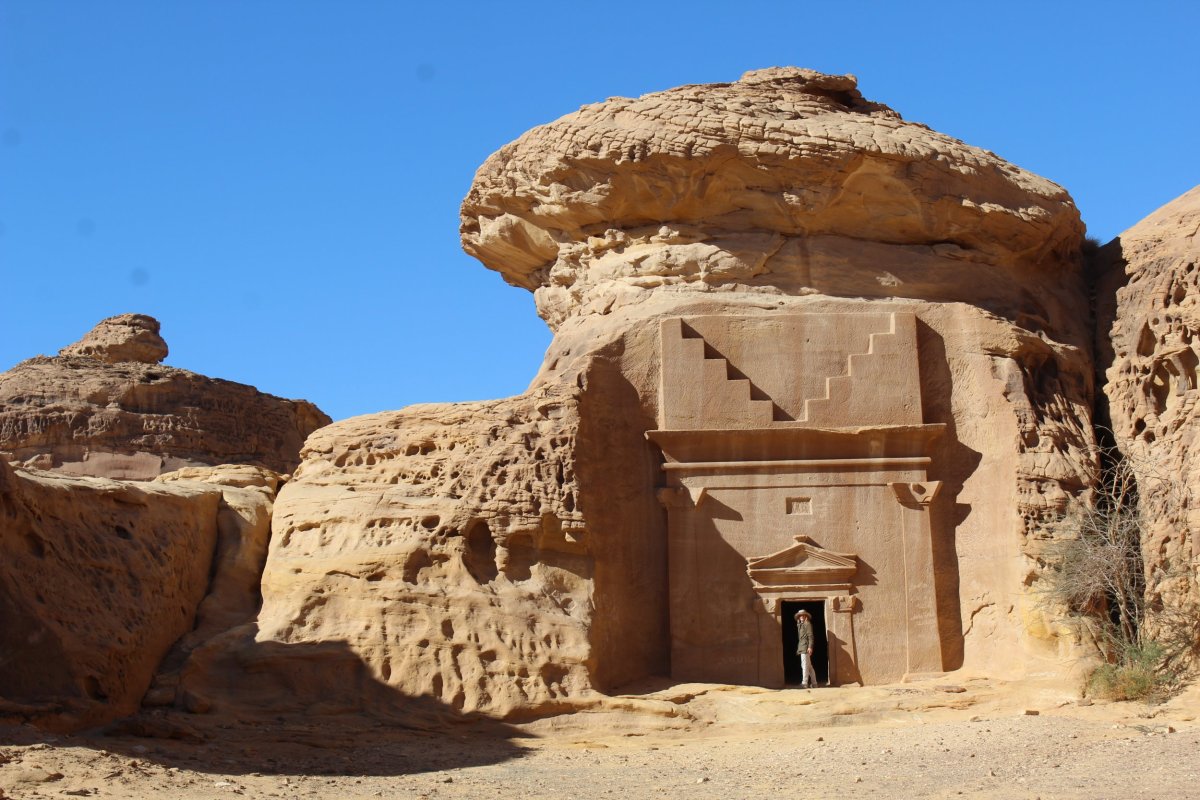
Did you feel safe?
I felt safe the whole time I was in Saudi Arabia, but whenever I travel I think you have to be sensitive and respectful of the local customs. The government is trying to figure out the right way to approach tourism. They're doing it in a very thoughtful way because they don't want to disrupt the culture of Saudi Arabia, and they understand this is a major change to bring foreigners into a society that has not had a lot of foreign interaction. Alcohol is strictly prohibited, and they don't want to create another Dubai. Rather, they're trying to figure out how to create something near the archaeological sites that will draw travelers who are going to respect the heritage of the place.
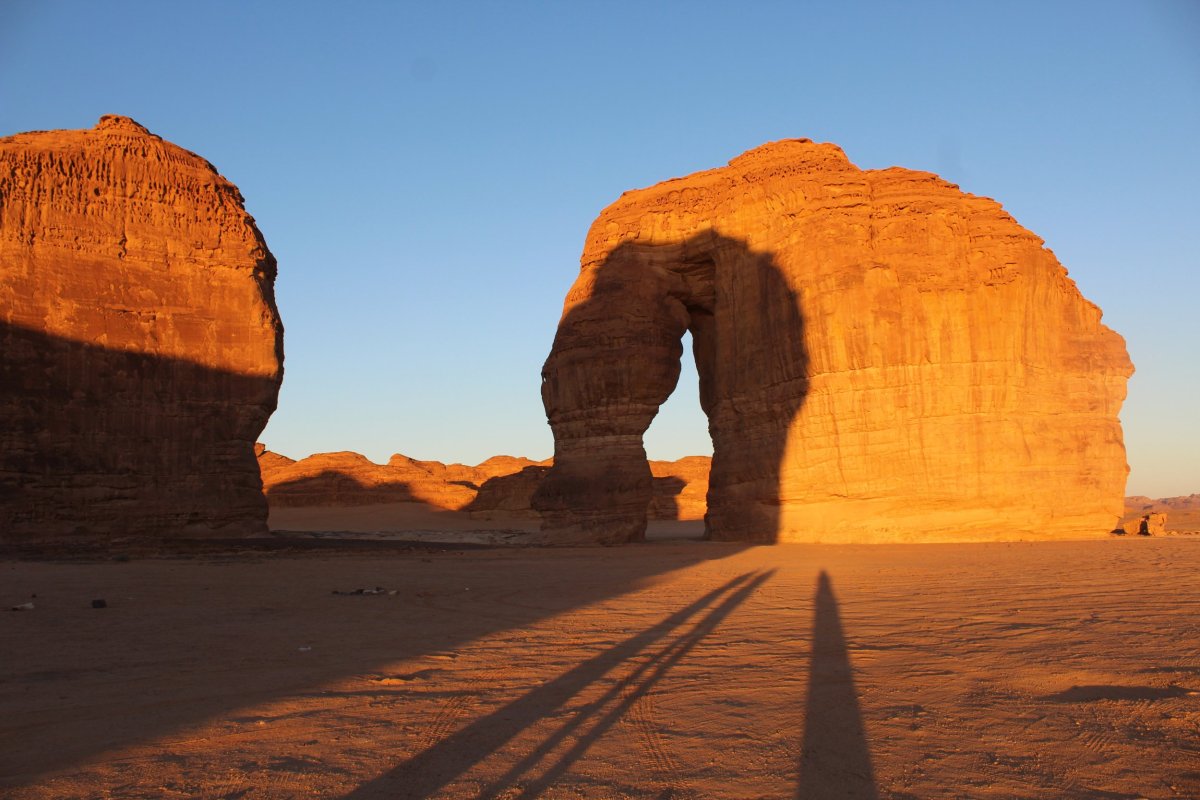
[When I first came back] I truly felt like I had been let in on one of the world's best-kept secrets. I've been a travel journalist for 25 years, and I had never even heard whispers of this place. To feel that you've been one of the first people to walk in one of the great wonders of the world before anybody has even heard of it reminded me of my grandmother's journey to Angkor Wat in the early 1960s, and feeling like she'd walked into a mirage. I thought, Well, that will never happen to me because everything else is already discovered and much of it over-visited.
So to have this experience was absolutely mind-blowing. I was extremely eager to be able to not only share it with other people but to know that it was going to be very thoughtfully unveiled to the world. You look at countries like Costa Rica or Botswana or Bhutan who've made those conscientious development efforts, and they have paid off in spades in the long run. To me, that's good news. We're in an area where there's so much over-tourism and where greed is getting ahead of responsibility and cultural preservation.
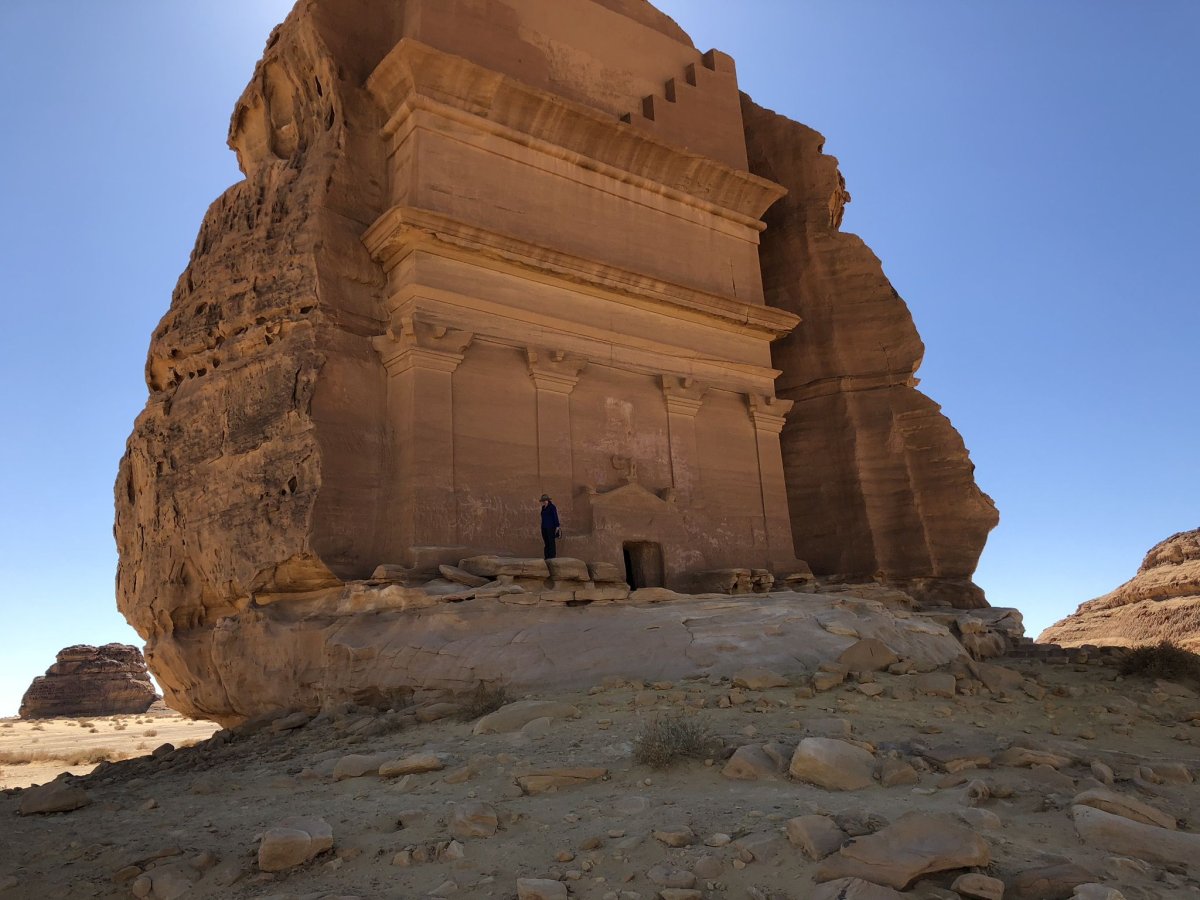
Ten months after Biggs Bradley's trip, the journalist and Saudi dissident Jamal Khashoggi was murdered inside the Saudi Embassy in Istanbul. In light of this, we asked her if she would return to Saudi Arabia now.
What happened in Istanbul was horrific. As a journalist, I consider what happened to Khashoggi to be a terrible tragedy and a setback for anyone who believes in democracy and freedom of the press. As a traveler, however, I am often confronted by the question of whether or not to visit a destination based on its leadership, politics, and policies—and this question is, to me, infinitely more complex.
Personally, I am a believer that cultural exchange promotes progress more than isolation does. I respect and understand the position of people who boycott regimes they don't agree with and hope that in boycotting they can apply economic pressure to bring about change. I've seen this tactic applied by travelers who refused to travel to Zimbabwe when Mugabe was in power in Zimbabwe or when the generals were ruling Myanmar. And there are many who still will not travel to Cuba in protest of the country's repression. But I've also spent time talking to people who've lived under those regimes who have said to me, "Boycotts are great in theory, but I can't put food on my table to feed my family because we so badly need foreign investment and visitors. We would rather have visitors and be able to communicate about our situation."
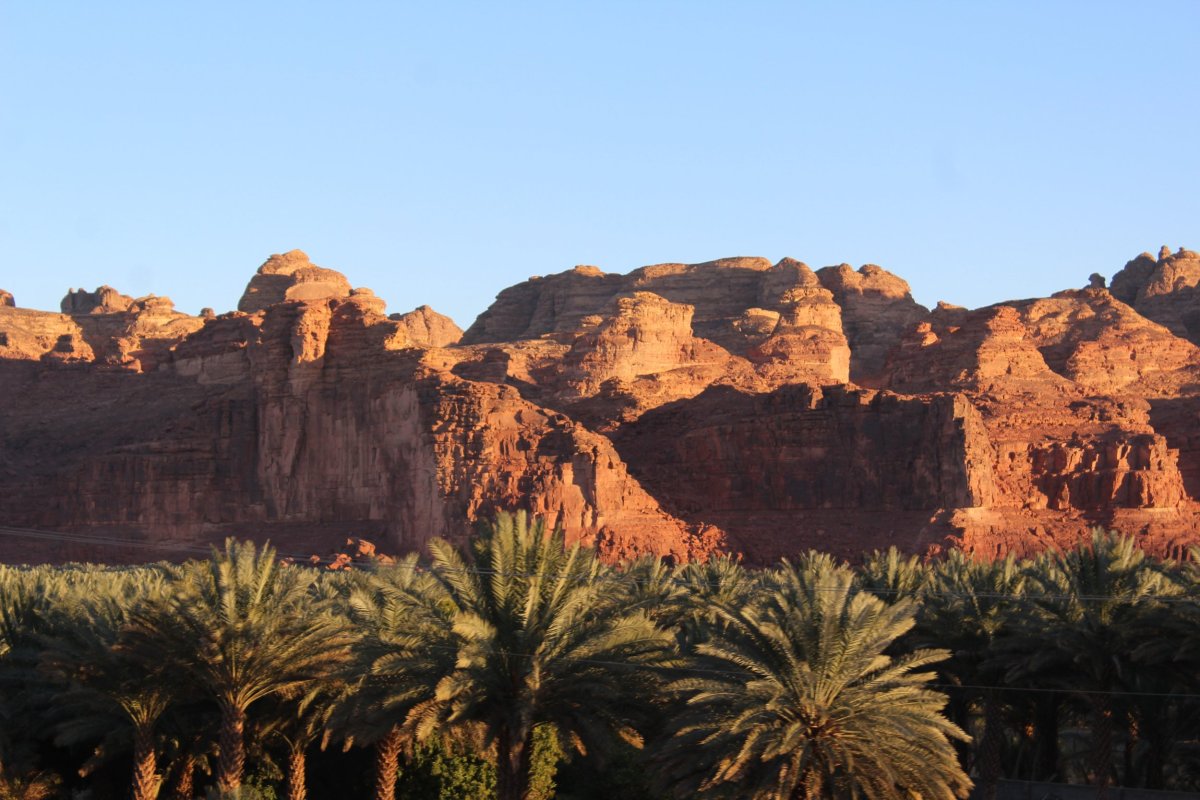
It's also important to note, however, that as a traveler to these types of complex destinations, you have a much greater responsibility to be an open, questioning and curious visitor. For example, when Myanmar was under the rule of the generals, a well-prepared traveler could choose to support businesses that were run by regular people, where you knew your tourism dollars would go directly to them and not the ruling elite. This required research, diligence and maybe even fewer creature comforts, but it enables you to visit in an aware and responsible way.
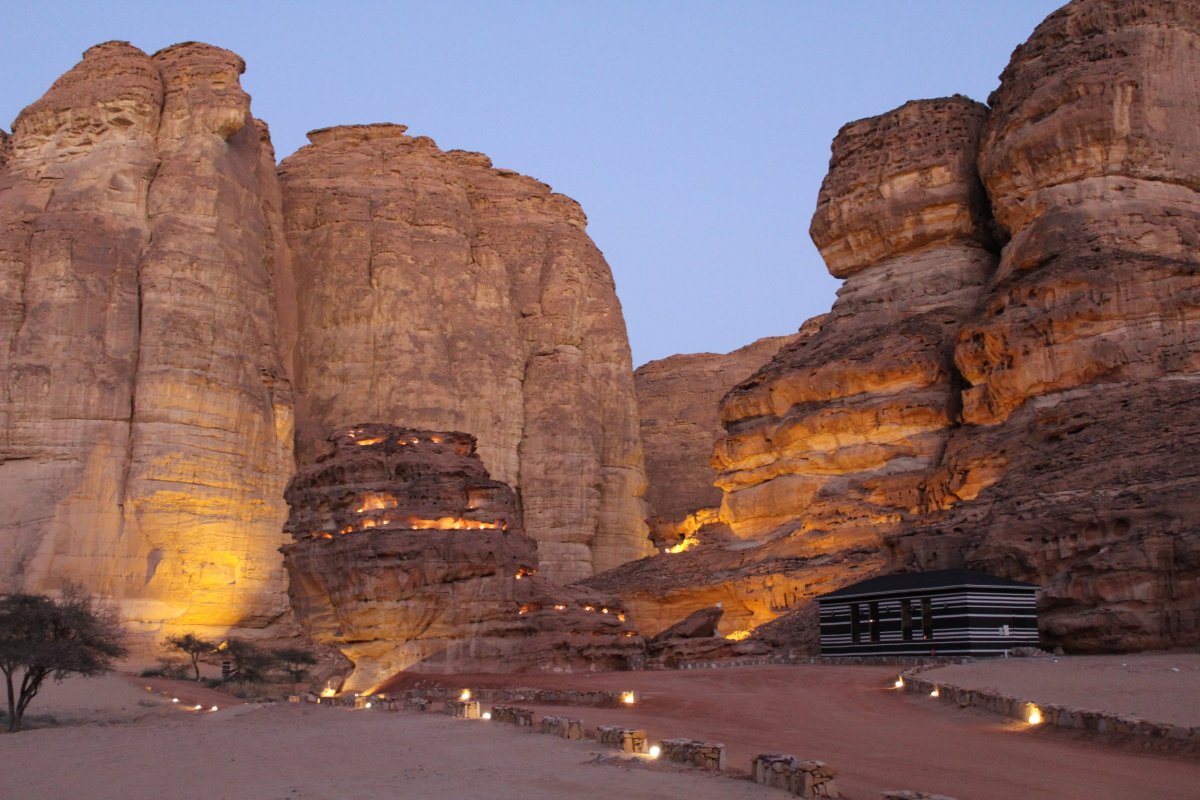
My hope is that as Saudi Arabia opens up with tourism, it will bring progress on social freedoms, including women's rights. I also hope people from outside of Saudi Arabia will want to see for themselves the country's culture and to meet its people. There's such power in witnessing a country through everyday citizens, instead of having those impressions filtered through only what the governments in power communicate. In people-to-people cultural exchanges, we are able to hear different perspectives and gain respect for each other's values.
In sum, as a traveler and a global citizen, I am someone who advocates for connection and exchange over isolation as an effective tool for change. If you can put a human face even on differing perspectives and expose other people to how much we have in common, as opposed to how different we are, it brings about an alternative way to open up change and dialogue. We absolutely will not learn from one another if we stay isolated—and to me, that is a huge motivator and one of the most urgent reasons to keep traveling.
For more photos of Biggs Bradley's trip to Saudi Arabia, click here.
Uncommon Knowledge
Newsweek is committed to challenging conventional wisdom and finding connections in the search for common ground.
Newsweek is committed to challenging conventional wisdom and finding connections in the search for common ground.
About the writer
To read how Newsweek uses AI as a newsroom tool, Click here.








